By Jonathan Cunningham
On a blistery and cold Michigan night, Detroit rapper Danny Brown emerges from his Royal Oak apartment dressed like some kind of hood hipster. Sporting a bone-tight pair of stone-washed jeans, black Chuck Taylors, an old-school flat-brimmed Detroit Pistons hat, and a shoulder-slung Spider-Man bag that has seen better days, it’s hard to imagine that this is the same emcee responsible for crafting some of the most graphically detailed street raps for the last year in underground hip hop — in the 313 and nationwide.
The spindly emcee hops into the car and heads toward his beloved Linwood Avenue neighborhood in Detroit proper. A self-confessed White Stripes fan and sports and videogame junkie, he talks of the evening’s Miami Heat game, playing NBA 2K Live for most of the day, and the glories of living with his on-again, off-again girlfriend: “I don’t know too many dudes that can live on their own like that. Some might, but I bet they ain’t got clean towels,” he says with a wry smile.
The jovial 29-year-old rapper immediately gives an impression of a kid who’s used to things going his way. He’s a riot in person, and it’s all wrapped up neatly when he flashes a tooth-deficient grin. He’s got confidence, a sense of self-satisfaction, to spare. One thing is certain: He’s not afraid to take career chances, and things do, inevitably, so far, work out in his favor.
Depending on his personal level of excitement, his voice sways easily between gruff and falsetto, he carries himself like a cocksure Snoop Dogg in his prime, one who doesn’t give a shit what others think of him. By the time we ease off the I-94 and roll toward a house off of Linwood, where he partially grew up, the street lights are all out, prostitutes stroll along the curb, and a speeding cop car flips down a one-way going the wrong direction. As luck would have it, this is Brown’s street.
As we stop in front his grandmother’s house, two squad cars close in on an Oldsmobile Cutlass Supreme parked a couple doors down. The cops bark at the occupants to put their hands in air. Brown’s reaction: Just another night in the hood.
We walk into the well-lit home and Brown immediately hugs his mother, Toya, and heads for the kitchen. She’s repainting the living room, holding a paint-roller in one-hand, and looks young enough to be the rapper’s older sister. She gave birth to him at 17. Tonight, she looks pleased that her eldest son has arrived with a reporter in tow. It’s a sign Danny is doing something positive with his life, by way of music.
Where exactly Brown fits into Detroit’s musical lineage isn’t easy to figure. The emcee shows glimmers that he could become one of the best street rappers in Detroit’s history. His growing Internet celebrity is testament to that — but on an international level. Dude’s clever wordplay, nutty-comical punchlines — often colored with commentary from his year-long jail stint — and his sometimes hardass disposition make Brown the wittiest hood rapper in the city, which says a lot, if you think about it. But Brown isn’t interested in that.
His topics on his most celebrated album thus far, 2010’s Quelle-produced The Hybrid, mostly involve rhymes about selling drugs, taking drugs, intricate details of urban poverty, and essentially being hooder-than-thou, which puts him in the league of other Motor City urban griots such as Trick Trick or Proof.
But unlike said rappers, Brown would rather wear the tightest jeans imaginable and rap to twentysomethings about abusing Adderall and staying on Twitter. He’s a fan of both, by the way, and because of that, his flock of online followers are big fans. It doesn’t hurt that Brown has that indefinable something — that inhuman quality — that draws others in. He openly courts crowds of chest-tatted, well-coifed hipsters across America, loves his skinnies, and admits he’s more comfortable in the L.A. hills than he is in his hometown.
Brown’s rising success in the last two years is due to the fact he’s a part of a new breed of social media rappers (think Das Racist, Lil B, Odd Future), one who’s part street, part hype, and whose fame is rising because he understands, and therefore does, the Internet hustle.
He recently inked a record deal with Brooklyn’s Fools Gold Records, arguably ground zero for ephemeral musical hipsterists and up-to-the-moment social commentators. Label signees include a knot of DJ and producer crews such as Duck Sauce, Chromeo, LA Riots, Flosstradamus and various other artists popular with the party crowd. Hell, Brown even lopped his long braids for a crazy asymmetrical do several weeks ago. And when Brown ain’t in Detroit, he’s often in Williamsburg or Hollywood — hipster Meccas, to be sure. They’re places where most folks have heard Brown’s music online, and now they want him up close, in real time.
And that’s only one side of Danny Brown. He plays the part and earns the money performing shows to that tweety twentysomething demographic, but Brown isn’t easily labeled into any category. In hip-hop, er, internet culture, Brown’s certified hood and a full-on hipster — a contradiction — and he’s proud of both — partly why he’s taken on the nickname, the Hybrid.
“It started as a line in a song, Brown says, chatting inside of his grandmother’s house. “I was off Adderalls, and I wrote this dope-ass rap, and I said, ‘I’m the Hybrid, y’all niggas gassed up …’ sort of referencing cars. I said that line, and it stuck. Then I wrote a whole song called ‘The Hybrid’ off Adderalls again and it started taking more meaning. Metaphor in that is that, y’all cats are old. And this is the new way.
Larger audiences began paying attention around 2008, shortly after Brown was released from Wayne County Jail for a probation violation stemming from a distribution and manufacturing weed charge. Brown tells the story of how he’s gone from jailbird to music sensation that gets mad love in respected media, such as L.A. Times, Pitchfork, Pop Matters, FADER and others while having little more than wit, luck and that famous smile on his side. Brown earns his living from doing shows, hosting parties, such as the monthly Funk Night in Detroit, and selling what music he has pressed up. He also gets $500 to $1,500 for a recording guest verses on others’ songs.
We’re sitting in the kitchen of what he calls the “frat house,” a home right next door to his grandmother’s that has considerably less appeal. Cockroaches creep across surfaces. The only heat here rises from the open oven, which is cranked to full.
Brown props his feet up on the oven’s door. The place isn’t a known drug house, but copper wiring’s a commodity with inhabitants, and it’s the house in which Brown shot his much buzzed-about “Greatest Rapper Ever” video that sees some dude stripping copper from the kitchen. How Detroit.
Sipping from bottle of Smirnoff vodka, Brown tells of his journey from the slum to, well, the slum.
“I used to sell crack out of apartments off Clairmount and Third,” he says. “Most of the stuff that I rap about is the truth. The line, ‘was so thirsty dog sold a pregnant bitch crack,’ that’s true. I really did that shit. She was smacking herself and everything. It definitely wasn’t a good time in my life.” His clink time wasn’t for crack sales. It was weed, which he smokes recreationally.
“I never got caught with no crack, that’s what makes it odd. Maybe it was my karma. I had to pay my dues. When you sell crack to a woman that’s pregnant, you have to pay for that. Jail was a chance for me to sit down and regroup myself.”
Upon his November 2007 release, Brown’s priorities were in place. He wanted to push his music to a wide audience and be a better father; his child is a 10-year-old girl.
In the mid-’00s, Brown was once best known in Detroit as the strongest member of Reser’vor Dogs, a three-man eastside crew who rapped of crime and women. (In fact, Brown was born Sewell, but going on the theme of Reservoir Dogs the movie, the emcee adopted his after Mr. Brown, his favorite character.)
The rap trio released a now hard-to-find album, 2004’s Runhispockets-dumpemindariva, and their name spread in local hip hop. They landed some press, including a piece in Murder Dog. The Dogs also got spins on one local FM station, which Brown claims the group’s manager paid for in hard cash.
Prior to the Dogs, Brown had recorded songs in the studio that belonged to the East Side Chedda Boys (famous for their regional hit song “Oh Boy”).
“My homeboy that was in the streets believed in me as a artist, so he got me in the Chedda Boys studio over off Davison, and they charged us $500 to record a song. I did four songs. Dude spent $2,000 on some of the shittiest material you’d ever hear in your life. That shit might be a collector’s item one day though … me rapping over some garbage-ass Chedda Boy beats.”
After more failures than successes in Detroit, Brown and Reser’vor Dogs hit New York City in 2004.
A friend’s uncle who once drove Jay-Z’s tour bus got the Reser’vor Dogs album into Roc-A-Fella Records. The label liked the Dogs, but talk of a deal eventually fizzled. “They liked the music and was gon’ sign us,” Brown says. “But basically, the guy representing us went in the meeting talking crazy, about how he wanted distribution control and all this shit. The label was like, ‘What? Get out of here.’ That was pretty much the end of that.”
Reser’vor Dogs returned home and faded.
The Roc-A-Fella folks did, however, notice Brown’s skills, and about a year later, Travis Cummings, a Roc-A-Fella A&R rep, liked Brown’s solo stuff enough to help hotwire Brown’s career.
Cummings remembers Brown well: “Well, after I heard his music, I told him that we should keep in contact. I shopped a couple of his tracks and mentioned his name to everyone. People at Atlantic, people at Def Jam, Jermaine Dupri, anyone that could help get him a deal. We banged out Danny’s Detroit State of Mind album in ’05, ’06. The majority of it was recorded in Queens, N.Y., at the Fire and Ice studios. Everyone used to record there, Nicki Minaj, Tony Yayo, Prodigy from Mobb Deep, Stack Bundles. I remember when Danny went to jail, I compiled all the tracks for Detroit State of Mind and put it on the Internet for him.”
Brown had returned to New York when things were falling in line, but the time wasn’t glamorous for Brown. “I didn’t have any money,” he says. “I was sleeping on couches, sleeping at the studio, eating beef patties or a slice of pizza for dinner. My peoples were holding me down, Western Unioning me money when I needed it. I’d hit up my mom, my dad, my grandma, whoever could send something.”
He remembers times when he and Nicki Minaj were recording material together and it wasn’t a big deal: “Nicki was my homie. Not surprised at all in the way she blew up. When I met her, she was rapping like Foxy Brown and Lil Kim. This was back in our grinding stage, eating chicken wings and fried rice together, you know.”
He also befriended rapper Tony Yayo, 50 Cent’s right-hand man. (Yayo and Brown released a slightly buzzed-about album, Hawaiian Snow, last year.)
Brown traveled to New York for weeklong stints, but, for the most part, he had nothing. Then he lost that year behind bars.
Brown is continually cracking jokes. Part of his appeal is how a room changes when he enters, it moves. There’s sudden joy. He’s like hip-hop Dave Chappelle.
Brown’s mien compliments his music well; he’s tall and lean, loves blunts and misses two front teeth. The dental flaw has become his trademark. People adore it. It certainly is endearing. Brown says he actually lost his adult front teeth twice.
“I just think God intended for me not to have teeth,” he says, laughing. “I was a little kid. I was riding my homeboy’s bike, back when I was staying off Gratiot. And this IROC-Z pulled out of a KFC parking lot and I didn’t see it. I got hit by the car head-on. That’s how I lost my teeth the first time. But I got ’em fixed! Parents paid for it and everything, I was good. Dawg, like a month later, I’m playing in the house, I fell and chipped a tooth on the table leg. I’m like, ‘Damn!’ Didn’t get it fixed, then was playing basketball a couple of years later, and a nigga came down with an elbow and chipped the other tooth. So I had two, big ass chipped teeth. The shit started deteriorating, and one day I was eating a big piece of chicken, and the shits just came out.”
Brown’s also part Filipino. “My dad’s mom is 100 percent Filipina,” he says. “Most folks don’t know that, but, yeah, I grew up going to Filipino church with her, being in that community and everything.”
He never learned to speak Spanish, and Brown’s 46-year-old father, Charles Strong, says his mother never forced it on the kids, but they certainly grew up eating Filipino foods and absorbing the culture. Brown is likely the most accomplished Blasian rapper of all time.
There’s his argot too, choppy and strangely reedy and rhythmic: “I honestly think I get it from crackheads,” Brown chuckles. “I think it comes from slinging to baseheads and watching them argue all day. That’s fucked-up, isn’t it? Living around crackheads made me talk the way I talk.”
Except that’s no joke. One thing that adds depth to Brown’s rapping style is his voice. It’s nasal and stretched, and much of the material he recorded on his 2008 album, the Nick Speed-produced Hot Soup, and his acclaimed 2010 release, The Hybrid, sounds as if he’s yelling the entire time.
DJ House Shoes, who campaigned loudly on Brown’s behalf when Hot Soup dropped, thinks that voice has huge commercial appeal.
“His voice is so different,” Shoes says. “It’s either going to push you away or grab you. He strikes a nerve in people and you can’t ignore him. The cat can rap his ass off. Danny is also a workhorse. He’s an artist that puts in the work, and even if he’s not financially making it, since he hasn’t released a project people have to pay for, he’s fucking fantastic.”
Brown appreciates that someone like Shoes has shown interest. He also recognizes the value of having Shoes’ blessing.
“House Shoes is the tastemaker here. You don’t go nowhere without a House Shoes co-sign. For you to get out of Detroit, you need a Hex [Murda] co-sign, you need a House Shoes co-sign, you need a Trick Trick co-sign. And they’re all fans of my music so I should be good.”
Last year, Brown spent the entire summer touring with G-Unit after re-establishing a connection with Tony Yayo. Several months later, he dropped Hawaiian Snow with Yayo, and despite disappointing sales, that G-Unit connection got his music to an entirely new demographic, and the rap world had to take him seriously.
“We recorded the whole Hawaiian Snow album on tour,” Brown says, working a blunt. “50 [Cent] has a studio bus that people can record on during tours. Me and Yayo did a lot of demo versions of songs on the bus while criss-crossing the country. And the songs that we liked, we re-recorded them and turned them into an album.”
For many rappers worldwide, recording an album on G-Unit Records would a huge accomplishment. But Brown wasn’t too impressed: “It wasn’t done when they put it out, in my opinion,” he says. “The mixes weren’t finished. We didn’t have enough good songs, and by the time we got to the point where [Yayo] thought it was done, I felt like we had just started clicking.”
The project earned Internet buzz for a few weeks, but soon evaporated.
Did Brown actually tell Yayo he was disappointed?
“I told him a lot of shit about it. But when a person has been in the game before you, sometimes you gotta take they advice. They might be right. But in that instant I was right.” Brown cuts Yayo far more slack than he normally would. The physical copies of the album had both artists’ name on the cover, but for the digital version, Brown’s name was mysteriously removed.
“With iTunes, it takes three months before you can get your first check,” Brown says. “Yayo was trying to look out for me, in a sense, getting me some money. But where I’m at career-wise, it’s too early in the game for me to be releasing duds.”
Brown out raps Yayo and guest star Lil B on the album, but in reality Hawaiian Snow stiffed. But Brown managed to get mostly positive exposure from it. There was an L.A. Times interview with Brown, and he featured on a Def Jam Records showcase in New York, and interviewed on-air with MTV. The bulk of MTV’s questions centered on Brown’s affiliation with G-Unit. Asked if the MTV interview annoyed him, Brown’s voice goes all high like Tyrone Biggums: “Hell, yeah, that shit is annoying! I don’t want to answer no questions about G-Unit. If I was on G-Unit, that would be one thing. Obviously, I’m not on G-Unit. Why is you asking me, man? ‘Cause now you trying to get me to say something bad about them. I got absolutely nothing bad to say about them. They were feeding me, they were dressing me. They took me all over the country. So I don’t have nothing bad to say about them. The shit just didn’t work out. It’s like that sometimes.”
But Brown’s not exactly on good, or bad, terms with G-Unit label head 50 Cent. They’ve clashed, and Brown says 50 would ride his case about wearing skinny jeans all the time.
“50 didn’t sign me because I wore skinnies,” he says. “I’ve never told anyone that before. He used to always try to get me to wear regular jeans and the shit was awkward. I get a lot of shit about skinnies. People hate on me all the time. I come in the room, shit tight, dick bulging, it’s for the bitches! This ain’t for y’all niggas. Don’t worry about me. I’m a slut nigga, obviously, I’m offeriing services. But at the same time, I still owe 50 a conversation. Just to say, ‘Thank you.’ ‘Cause I never said that to him. I see how the industry is. It took me to the next level to see the game.”
But what’s interesting is what Brown’s doing now. He’s steering away from mainstream hip hop, in a sense, navigating his own lane: Internet rap. And why not? Brown’s a master self-promoter, which is key. So lately he’s had far more success releasing projects digitally than physically. Between his brisk Twitter personality and select interviews with key bloggers, his online cachet has shot up exponentially within the last 15 months. Brown has become a member of an elite group of social media rappers who use technology and Internet attention spans to dominate the next wave of hip-hop.
“This the digital age,” he says. “We not trying to get on MTV, we just trying to get on YouTube and be even bigger.”
His official manager, a kind of Detroit hip-hop gatekeeper, Hex Murda — who also handles Elzhi, and Black Milk — thinks Brown’s smart for taking that route, applauds him for never creating songs that are radio-friendly.
“Man, fuck commercial radio,” Hex says. “As far as breaking new artists, they’re in the Stone Age. People today cut on their computers. … You wanna hear that new Danny Brown? Well he’s not on your FM dial, but punch a few keys on your laptop and you’ll find him. He knows his audience. An Internet rapper for an Internet age.”
Brown thinks of days when he was younger, pining for citywide attention, and almost laments that he tried the traditional route. “There’s no need to pay the radio any more to get your songs on air,” he says. “I get a million hits on nahright.com. I’m definitely not about to pay for that shit. If I won’t pay for pussy, I damn sure won’t pay for radio.”
Each single Brown releases is covered by buzz-up blogs such as twodopeboyz.com, nahright.com and various others. It’s as if because he’s playing by the rules of social media and instantly making himself available to everyone, folks are willing to invest in the punchline-driven rapper even more. But behind the persona, behind the mad promoting skills, is the real deal.
Born Daniel Sewell on March 16, 1981, Brown has rapped since he was a little kid. He’s wanted to be a rapper for as long as he can remember. Sure, that’s not the first time an emcee has used such a line with a journalist, and often, it’s not true. They all wanted to be firemen, wrestlers, underpaid music journalists. Something. Not Brown.
“The youngest I remember Danny take rapping seriously was, I’d have to say, elementary school,” his younger brother Marq Sewell says. “At night, we supposed to be sleep, and he’s creating songs. It was little kid stuff, ’cause of his age, but it was serious. By the time he was 12 or 13, he was listening to Bone Thugs-N-Harmony and he used to do the fast flow. It would amaze people to see someone rap that fast and he could actually do it. While freestyling! People’s eyes would get really big.
As the oldest of four sibs, Danny was always the household jokester as well.
“He always wants that good laugh,” Marq continues. “The fact that he says some funny shit in his rhymes is just a continuation of that. He really just likes to make people laugh.”
Brown’s dad agrees: “Ever since he was 6 years old, he was rapping and coming up with funny stuff to say. I used to DJ and he kind of gravitated toward that.”
While Dad remembers taking Danny to Run DMC concerts at Pine Knob years ago, exposing him to such rappers as Rakim, NWA and Egyptian Lover, he wasn’t convinced his son would make music a career. That is until he attended his son’s first rap show.
“I didn’t know anything about him rapping like that until I went to his 6th grade graduation,” Strong says. “Next thing I know, him and two other guys were out there rapping in front of the whole audience. And they were good! He was rapping, telling the other graduates to stay in school, stay focused …”
Danny was also the mini Michael Jackson of the family, and would sing any song like a jukebox and leave everyone in stitches.
And the older Brown got, the deeper his hip-hop knowledge became. “Our dad was big into music, so he’d get us the DJ Clue mixtapes before anybody in Detroit knew who DJ Clue was,” Marq says. “By the time we got a computer and we had Napster, it was over. Danny started studying hip hop from everywhere and never looked back.”
It’s not easy to divert away from Brown’s outward appearance, but his lyrics indelibly take hold. He blew rap fans away on underground and mainstream levels with the free download album The Hybrid. Songs such as “Guitar Solo,” “Nana Song,” and “Thank God” depict black life below the poverty line like a Donald Goines novel. And who else raps about killing roaches with your bare feet? Brown is keen on his poverty raps and people gravitate to that. His rap imagery also deals with mothers as prostitutes, drug dependency, hopelessness, and state assistance. Brown admits that about 75 percent of what he writes is the truth, with the other 25 percent comes from observations of others’ situations.
The graphic detail that supports Brown’s material caught the attention of Def Jam Records head Sha Money XL, who spent time with Brown during his stint in the G-Unit camp.
“Danny has the kind of wordplay and topic choices that remind me of the time when I first heard Em’,” Money says. “Danny has a strong powerful voice with a tone that stands out. Detroit has a lot of talent right now, but Danny is clearly in the front.”
The folks at Fools Gold Records feel the same. Now that Brown is on their label, more national touring is coming, giving his music a chance to get legs in clubs and other outlets apart from Internet access. Don’t expect any international touring in the immediate future, though. Brown doesn’t have a passport yet, and doesn’t seem that psyched on crossing the pond despite his online-generated overseas fan base.
“See, I’m not trying to go overseas and do grimy shit. I be hearing the stories too. Niggas going over there for chump change. I rather just go to Chicago and make the same money. I’m pretty sure I’d be going over there playing the Chitlin’ Circuit. Folks feel good just playing overseas. But you know when you on some bullshit. Just ’cause you poppin’ overseas don’t mean it’s time for you to go. You got a lot of groundwork to lay in your back yard.”
Brown recently released The Hybrid this month on vinyl, with help from Funk Night proprietor Frank Raines. Brown is eager to drop more singles this year, but isn’t sure when the next album will come. “The next project is make-or-break for me,” Brown says. “I can’t rush it. Folks are ready for me to win big or fall off. I’m not sure how it’s going to go, but so far, everything is moving in the right direction. I’m just praying it stays that way.”


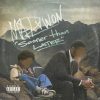


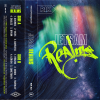
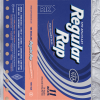
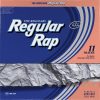
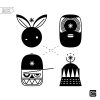
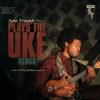
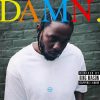
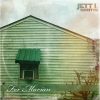


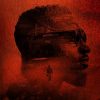
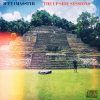
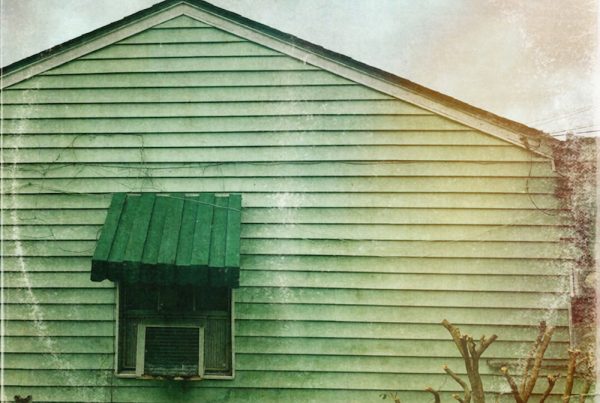
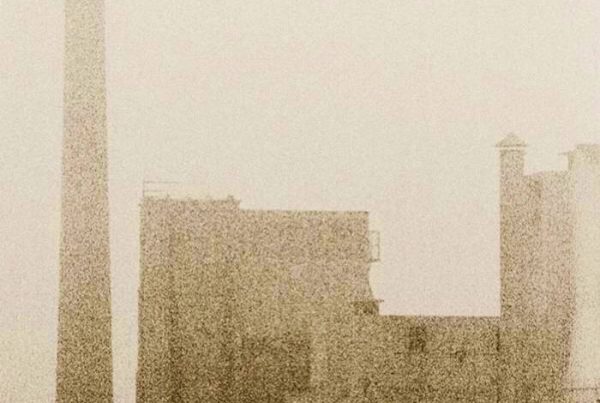
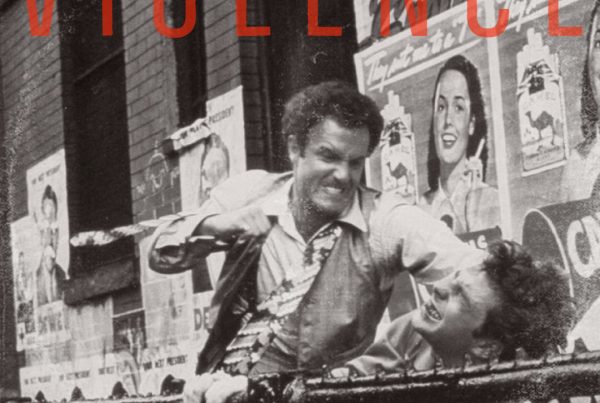

Good look for the homie Danny Brown. Ioneven care his hair makes him look like the main character in an old Final Fantasy game…
CHECK! © Danny Brown
One.
Great story. Good to see him get signed by a dope label. Congrats to D Brown. Swag.
Get it in.
It’s unbelievable that the boys from ODD FUTURE were at Santos, NYC and I wasn’t aware of. I’m very sorry I couldn’t be present. The ODD FUTURE is my favorite. Maybe I will be luckier next time.
I’m sorry but Danny Brown’s haircut looks gay as sh*t on this cover!